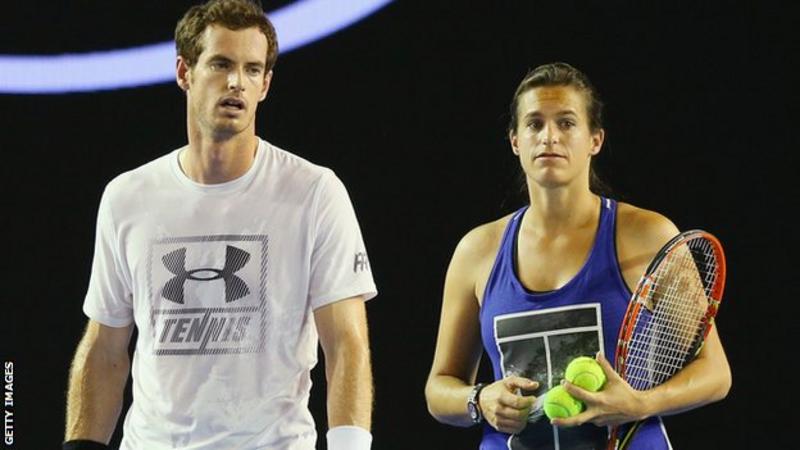The first morning I arrived at ALTIS, I was struck by how
busy the facility was, but how well everybody worked together. There must have
been the best part of one hundred people there, divided into several groups,
but there were no issues of people getting in the way of one another. It was a
pleasant contrast to being at Sports City’s track in Dubai. There were no
groups that were spread out over seven lanes, no one set up half way down the
home straight, no cyclists on the track (yes, this happens) and no toddlers
sitting in lane four (which also happens). It was a well-oiled machine, and
everybody respected each other’s right to be there. The three coaches I spent
the most time with were Dan Pfaff, Chidi Enyia and Stu McMillan.
 |
| Stu McMillan and I. |
The first couple of days were spent with Dan watching the
jumpers, and I felt a little better about hanging around by raking the pit and
earning my presence at the facility. Dan’s sessions were very relaxed affairs,
that appeared to be quite athlete led. He did little by the way of ordering
athletes to jump, and left it up to them to decide when they were ready, whilst
sitting and observing quietly. When feedback was required, he would offer it,
often in the form of a cue to be used in the following jump. There was
certainly no over-coaching taking place, which may have happened if Dan was a
less secure coach, without his vast experience.
 |
| ALTIS and Canadian World 100 metre bronze medallist, Andre De Grasse and I. |
The latter part of my stay at ALTIS was spent observing the
sprinters, and largely Stu McMillan. Stu’s coaching has had a large influence
from Dan, and it was clear to see by the way he also allowed the athletes to
take responsibility. Athletes would ask Stu how their run was, and Stu would
reply, ‘how did it feel?’ A strategy I had not seen used before was where Stu
gave his group thirty minutes to complete as few or as many one hundred metre
runs off the bend as they felt appropriate, allowing for the individual
differences in psychology and physiology. Some athletes ran maybe four runs,
others did up to six or seven. Another occasion that stood out to me was Carlos Herrera, the
Mexican record holder, asking Stu if he could skip the lifting part of the
session as his back had felt a bit tight, and Stu immediately said that was
fine, without appearing to be fussed by it at all. That led me to believe
(perhaps I am jumping to conclusions) how secondary weight training is viewed
to sprint performance, by one of the leading authorities in speed training. In a
similar scenario, Greg was not feeling too well one morning, and when I arrived
at the track without him, Dan asked me if he was training, to which I responded
that he was at home resting, and again Dan did not appear fussed. He trusted
Greg’s judgement. I left Arizona feeling like I a lot of my thoughts had been
reinforced, and I learnt the value of trusting the athlete and their instincts.
 |
| Chidi Enyia and I. |
The key take way from the trip was the reinforcement that
there is no magic bullet when it comes to training, and those that tell you
there is are probably trying to sell you something. On a different note, the
staff were extremely helpful and friendly, and invited me to contact them
should I have any questions. It has been great to keep the lines of
communication open with members of the team. If you have the opportunity to
visit ALTIS, I strongly recommend it. You may not leave blown away by fancy
training techniques, but you will leave with an appreciation of the consistency
and attention to detail required to train at the highest level.
